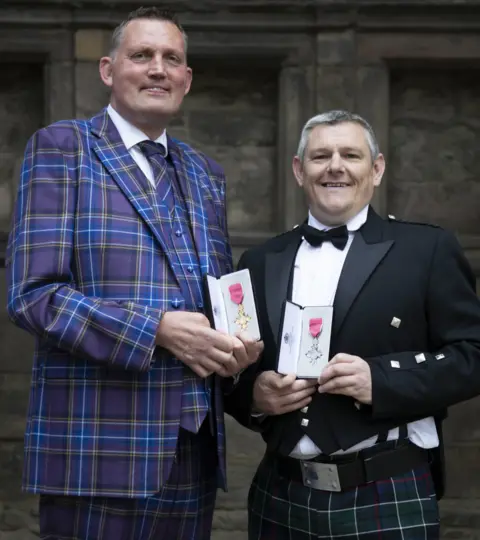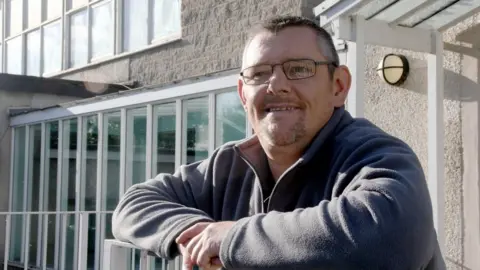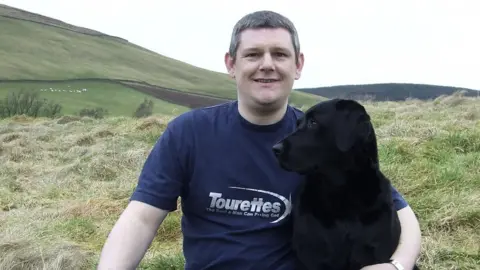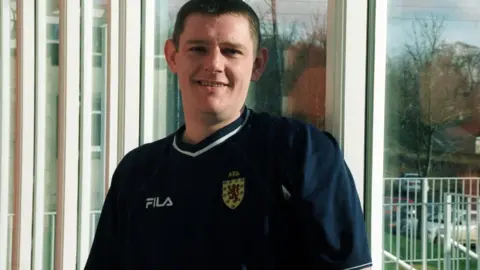John Davidson MBE: Meeting the Queen when you've got Tourettes
 PA Media
PA MediaA long-time campaigner for Tourette's syndrome awareness has described the "added pressure" he felt meeting the Queen to get his MBE.
John Davidson, of Galashiels, recently received his honour at the Palace of Holyroodhouse in Edinburgh.
He was being recognised for his efforts to increase understanding of the condition and helping families deal with it across the country.
Mr Davidson said he hoped his award would inspire others to follow suit.
"I was presented the MBE by Queen Elizabeth herself which came as a bit of a shock," he said.
"I knew it would be somebody from the Royal Family but with it being the Queen, it kind of added a wee bit more pressure.
"But it was an amazing experience I will tell you that. The set up of the whole day was absolutely amazing - very professional."

Former Scotland rugby international and motor neurone disease campaigner Doddie Weir received his OBE at the same ceremony in Edinburgh.
Mr Davidson said the event had been "very well organised" and they had been made to feel "very welcome".
However, it was not without some stress after the wait to receive his honour was over.
"Of course, me having Tourette's it was a bit of an added pressure for me, obviously, in front of the Queen using expletives and stuff," he told the BBC.
"But it went OK, it seemed to be quite under control on the day.
"We did it and I came out the other side."
Mr Davidson first became famous after the 1989 BBC documentary about his life called John's Not Mad.

What is Tourette's syndrome?
Tourette's syndrome is a condition that causes a person to make involuntary sounds and movements called tics.
It usually starts during childhood, but the tics and other symptoms usually improve after several years and sometimes go away completely.
There's no cure for Tourette's syndrome, but treatment can help manage symptoms.
Source: NHS website


He has appeared in a number of programmes since and continually campaigned to increase understanding of Tourette's.
"I think just having received an MBE in itself is a massive thing, you know, especially for someone like myself who has lived and campaigned for over 30 years to raise awareness and get acceptance of the condition," he said.
"Just because we've got Tourette's, and the nature of the condition, it doesn't mean that you can't go out and achieve stuff.
"I think just me getting the MBE is enough to inspire other young people and other adults with the condition and even families because Tourette's doesn't just affect the person who gets the diagnosis, it's the whole family it affects."
He said his award was a "huge leap in the right direction for raising awareness".

"It gives other people inspiration to maybe go out and do the same to heighten awareness and get a bit more understanding," he said.
"When I first started out doing the charity work it was something that kind of came natural, I knew that I had to do it because there is a lot of ignorance in the world not just towards Tourette's - about any disability."
He said it did not seem, at times, as if he had done a "huge amount" but he recognised it was a "massive achievement".
"I feel very, very proud of the fact that I've received the award but I also feel that it's not just me that's done it - I've maybe led from the front kind of thing," he said.
"I don't think looking back that I've done a huge amount but obviously to other people it's massive so it's quite an achievement and I'm very proud."
